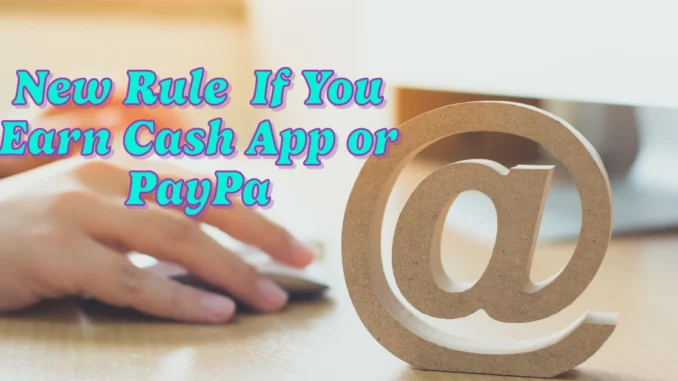
Freelancers and gig workers, take note: the IRS has implemented new reporting rules for third-party payment apps like PayPal, Venmo, and Cash App. If you’ve received $5,000 or more through these platforms in 2024, you’ll need to file a 1099-K form when submitting your 2025 tax return.
Table of Contents
This shift isn’t about new taxes; it’s about how income is reported. Here’s what you need to know to stay ahead.
What Is the 1099-K and Why Does It Matter?
A 1099-K form reports income earned through third-party payment apps. It’s common for freelancers, gig workers, and contractors who don’t have taxes automatically withheld. Previously, only those earning more than $20,000 across 200 transactions received this form.
Under the American Rescue Plan, the threshold was initially set to drop to $600, but the IRS is now taking a phased approach. For 2024 income, payment apps will issue 1099-K forms for earnings over $5,000, giving everyone time to adjust.
US Government Announces $500 Stimulus Checks for Eligible Migrants: How to Qualify
New York Becomes First State to Mandate Paid Medical Leave for Pregnant Workers
End-of-Year Relief: Are You Eligible for the $800 Stimulus Check?
New York Residents to Receive $900 Heating Stimulus—Are You Eligible?
What Changed for 2024?
The IRS delayed implementing the $600 threshold rule, giving payment apps more time to prepare. Starting in 2024:
- Earnings over $5,000 through platforms like PayPal, Venmo, and Cash App will be reported to the IRS.
- The $600 threshold will come into effect at a later date.
This adjustment aims to reduce errors and ensure accurate reporting for taxpayers and payment platforms alike.
What’s Included (and What Isn’t)?
The IRS’s updated rule only targets taxable income, such as payments for:
- Freelance work (e.g., graphic design, writing).
- Side gigs (e.g., tutoring, photography).
Nontaxable payments, like splitting dinner bills or receiving money from friends, won’t count. However, using separate accounts for business and personal transactions is strongly recommended to avoid confusion.
$1,200 Monthly at Age 62: How to Qualify for Your Social Security Benefits
Montana’s $675 Property Tax Rebate: How Homeowners Can Qualify and Apply
SSI New Policy 2025: Simplified Rules Expand Access to Monthly Benefits
Exceptions to the Rule: Zelle Stands Alone
Zelle is not subject to the 1099-K rule. Unlike other apps, Zelle doesn’t store funds but simply transfers money between bank accounts. That means:
- Zelle won’t send out 1099-K forms, even for business payments.
- You’re still responsible for reporting earnings received via Zelle on your Schedule C tax form.
How to Prepare for 2025 Tax Season
- Track Your Earnings: Keep accurate records of all income, especially through payment apps.
- Separate Accounts: Create business-only accounts on PayPal, Venmo, or Cash App to keep personal payments out of your 1099-K.
- Check Your Inbox: Payment platforms will send 1099-K forms for applicable earnings early in 2025.
Why the Change?
The IRS wants to ensure all taxable income is reported. Previously, many transactions through third-party apps went untracked, creating a gap in tax compliance. According to IRS Commissioner Danny Werfel, the phased implementation will provide both the IRS and payment apps time to adjust and improve reporting accuracy.
Stay informed and organized to avoid surprises this tax season. The new rule may feel like an extra step, but it’s designed to create transparency and ensure compliance across the board.
Leave a Reply